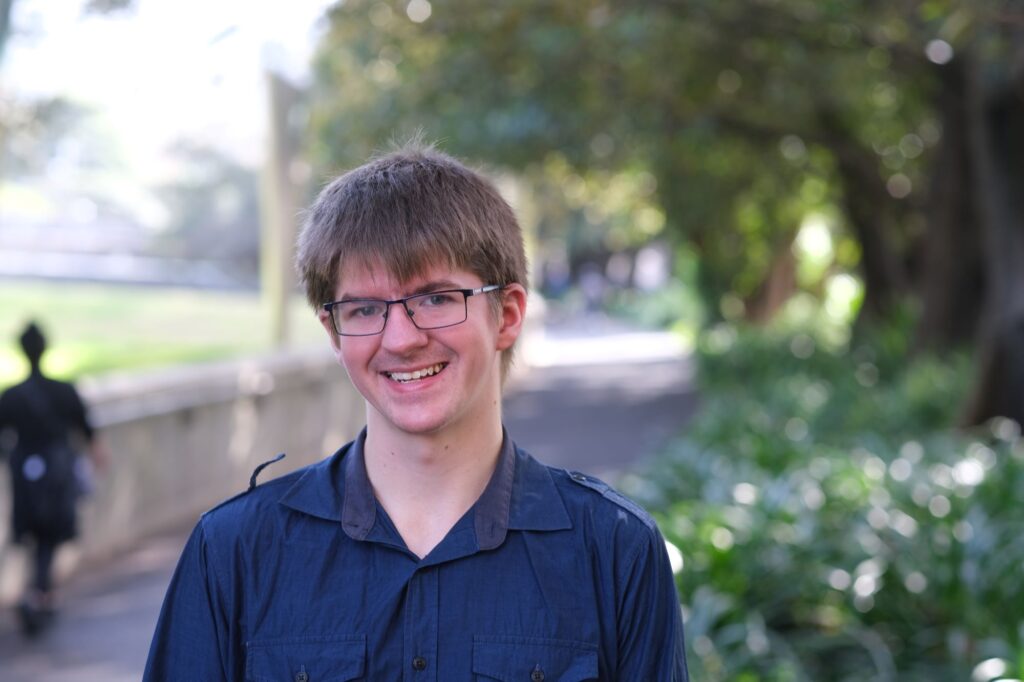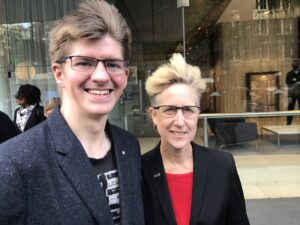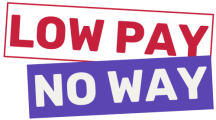
James tells us how he really lives and why our minimum wage stinks.
Hi, I’m James, I’m a 26-year-old bartender and I love what I do. I’m also a proud member of the United Workers Union.
This job used to pay enough that I could easily afford my bills with a bit left over to save, but not any longer. Every week, I’m finding it harder and harder to afford rent here in Sydney and pay for food.
It’s kind of ridiculous – I work pretty close to full time, but I’m on the brink of homelessness. What kind of society do we live in where people do the best they can in their circumstances and are still pushed to the edge?
But everyone has a voice, so I’m using mine to speak out about our shamefully low minimum wage and award pay rates.
My life as a bartender
Every job has some value. Not everyone can be a lawyer or a doctor. But all those jobs are needed and everyone has a part to play in society.
Bartenders are the unknown and underappreciated counsellors from yesteryear. Before we had psychologists, whenever you had a problem, the person you’d probably end up seeing first was a bartender.
Being in the hospitality industry, you’re not just serving for the sake of a quick buck. When a person comes up to the bar; they get served a drink, but they also feel they’re at home. They don’t have to worry about what’s going on outside. They can speak about what’s going on in their life or they can forget their troubles.
I never know what is going on in someone’s world, but I like to greet everyone with a genuine smile and ask them how their day has been. I believe I can make a difference in people’s lives when I show I care.
It’s getting harder to pay my bills
Despite how much I love my job, I’ve got to admit the pay isn’t great. I usually earn $600 – $800 a week and $485 of that goes to rent. I transfer a proportion into a separate bill account, so I try not to be out of pocket for the important things. But this year, it’s becoming harder and harder to pay for my living expenses.
I’m a type 1 diabetic, so healthcare is pretty important. But I’m slightly frantic about how I’m going to pay my next health insurance premium.
It’s sad to say that having fruit has become a luxury because it’s just so expensive. Two-minute noodles have become a pretty standard part of my diet.
There have been other sacrifices. Heating this winter was completely out of the question and some nights we didn’t turn the lights on at all. We just couldn’t afford that extra cost. I used to save a bit each month so I’d have a buffer. But these days, there’s just nothing extra once I’ve paid for all the essentials.
I know I’m not alone. Young people like me are sacrificing food and medicine just to make ends meet. We can’t afford to meet up with friends, exercise or do things we enjoy that cost money. This means our mental health suffers as well. It’s a vicious cycle.
Our wages are the issue
My grandfather was a bartender in a fine dining restaurant and he could buy and maintain a house on that single wage. You could never do that these days, and not just in my city.
In this article, Greg Jericho from the Centre for Future Work compared two people – one born in 1946 and one born in 1980.
Consider they both got their home loan at age 34. The person born in 1946 may have had a higher interest rate in 1980 when they bought their house, but their average repayment was 29% of their income. It was possible to have one income and still pay the mortgage.
However, for the person born in 1980, they buy their first home in 2014. By this point, the average home loan has gone up 1,079% but the average wage has only gone up 360%. So their mortgage repayments are on average 46% of their average earnings. And it’s only been getting worse since then.
Let’s face it though, that’s for people lucky enough to afford to get on the property ladder. The way I’m going, it’s never going to happen.
One ABC report found that “a single, low-income, full-time worker living in Sydney was deemed to receive $852 in total income, after tax.”
“That’s about 20% higher than the minimum wage.”
“But that individual needed $945 for food, clothing, personal and household items, health, housing, transport and an ‘austere’ level of discretionary spending.”
What does that mean? Many hard-working Australians don’t earn enough to keep up with the cost of living. We’re at crisis point.

What can we do?
The 5.75% increase we received in 2023 was a good win by union members, and I was proud to be part of that campaign. But it barely scrapes the surface. We are still going in the right direction if we want to increase homelessness, that’s for sure.
I can’t keep living like this, and I don’t think you can either.
We need to start talking about Australia’s minimum wage and award pay rates. Clearly, for way too many of us they are not enough to live on without facing constant anxiety and a daily battle to just survive.
If you have a job, you should be paid a living wage. It’s that simple.
There are millions of us in the same position. We need more people to speak out and tell our stories, and more voices to come together in our union and get really loud.
Interested in learning more? Join UWU now to fight for higher wages and a better standard of living for all working Australians.

